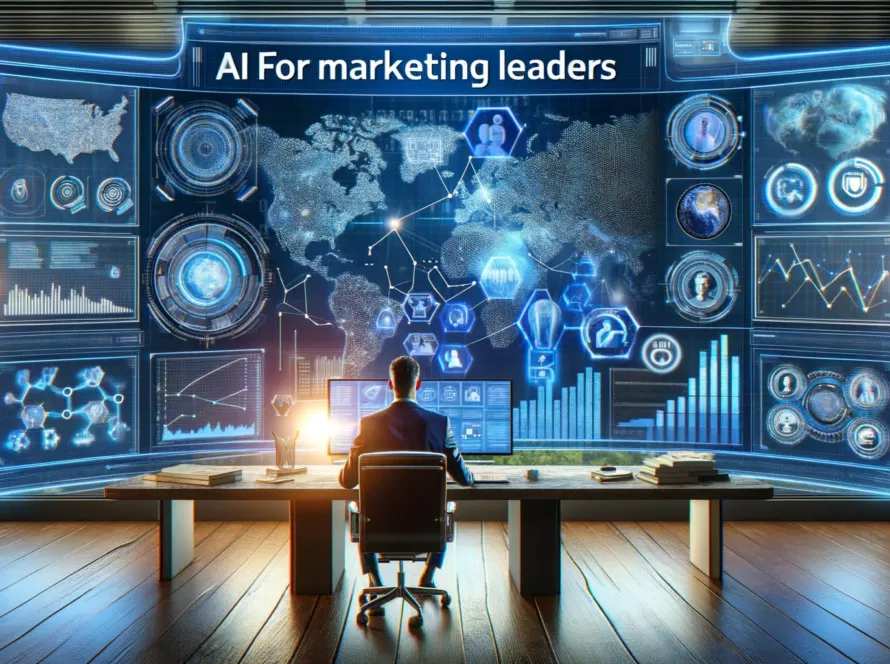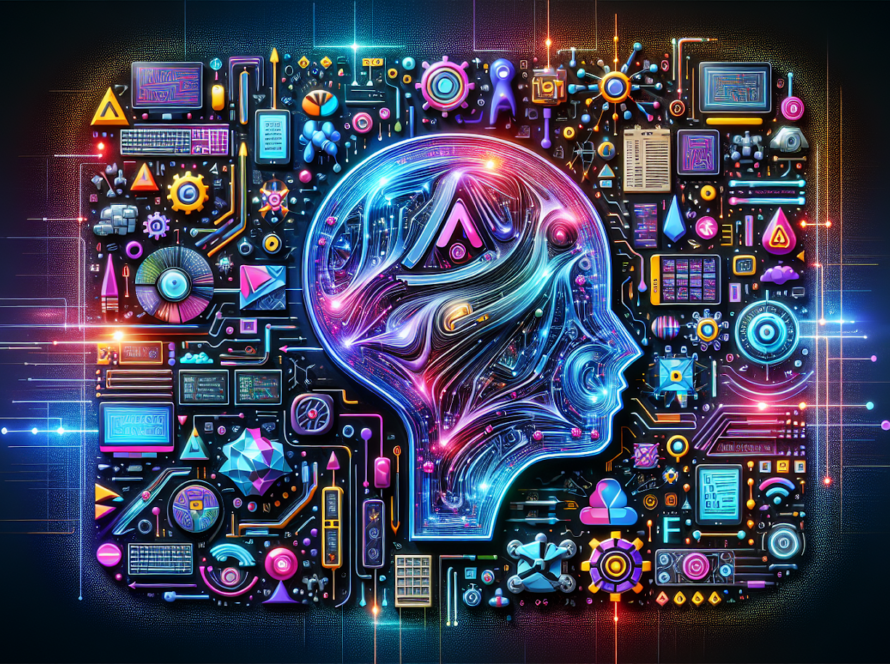With the growing complexity of business processes, companies are moving beyond basic automation and looking towards more intelligent, agentic AI solutions. This transformation is made possible by AI agents and AI agent workflows, which redefine how tasks are completed through advanced, adaptive automation. Let’s delve into what these terms mean and explore how agentic automation can empower your business.
What is an AI Agent?
An AI agent is a piece of software programmed to perform specific tasks autonomously, without requiring constant oversight. Unlike traditional automation, which relies on repetitive, predefined actions, an AI agent can adjust its behavior based on new data, changes in the environment, or refined objectives. This capability allows AI agents to mimic the decision-making processes of humans but at a much faster rate, making them invaluable in dynamic workflows.
Key Characteristics of an AI Agent:
- Autonomy: Operates independently, minimizing the need for human intervention.
- Adaptability: Responds to new data or changes in the environment.
- Goal-Driven: Works towards specific objectives set by users or the system.
- Data-Intensive: Analyzes and processes large amounts of information to optimize actions.
What Are Agentic Workflows?
Agentic workflows refer to workflows designed to operate through AI agents, combining the structure of traditional workflows with the flexibility and intelligence of autonomous systems. These workflows can be set up to handle a wide range of tasks, from customer service and data management to complex decision-making processes.
Why Choose Agentic AI Solutions?
Agentic AI solutions offer a more dynamic approach to workflow automation, leveraging AI to not only execute tasks but also to make informed decisions along the way. Here are some reasons businesses are turning to agentic automation:
- Increased Efficiency: AI agent workflows can manage multiple tasks simultaneously, leading to faster completion times and less need for manual labor.
- Reduced Errors: By minimizing human intervention, agentic workflows reduce the risk of errors, which can be costly in terms of time, money, and brand reputation.
- Scalability: AI agents can easily adapt to increased demands, making them ideal for growing businesses.
- Cost-Effective: Although initial setup might require investment, agentic workflows can save substantial costs over time due to decreased labor and error costs.
How Do AI Agent Workflows Work?
AI agent workflows typically involve a series of steps orchestrated by one or more AI agents, which interact with both digital and physical environments to carry out tasks. These workflows are more than just automated sequences–they incorporate decision-making capabilities, which allow the AI agents to pivot and adjust actions as needed.
Steps in an AI Agent Workflow:
- Data Collection: The agent gathers data from multiple sources, including databases, real-time inputs, and user interactions.
- Data Analysis: Using machine learning algorithms, the agent analyzes this data to identify patterns or trends.
- Decision-Making: Based on its analysis, the agent determines the next course of action.
- Action Execution: The agent executes the chosen action, whether that’s updating a database, communicating with a user, or adjusting a physical system.
- Continuous Feedback Loop: The AI agent learns from each action, using feedback to refine future decisions.
Practical Applications of Agentic Workflows
- Customer Support: AI agents manage queries in real time, answer FAQs, and transfer complex cases to human agents. Agentic workflows help ensure each customer receives the appropriate response based on their needs, reducing response times and enhancing customer satisfaction.
- Finance and Risk Management: By using workflow automation AI, finance departments can streamline compliance checks, manage transactions, and detect fraud. AI agents can evaluate financial risks by analyzing transaction patterns, flagging anomalies, and responding to threats autonomously.
- Supply Chain Optimization: In supply chains, agentic automation enables agents to monitor and respond to disruptions, track inventory levels, and reorder stock as necessary. AI agent workflows can also prioritize shipments, route orders efficiently, and optimize costs.
- Healthcare: In healthcare, AI agents assist in scheduling, patient data management, and diagnostics. An AI agent can monitor patients’ vital signs, detect abnormalities, and notify healthcare professionals immediately, creating a proactive approach to patient care.
- Human Resources: Agentic workflows can streamline hiring processes, conduct initial candidate screening, and automate payroll. By analyzing employee data, AI agents can suggest changes to scheduling or even identify high-potential employees.
Benefits of AI Workflow Automation with Agentic Capabilities
- Personalization: Agentic workflows can adjust interactions based on past data, allowing companies to tailor customer experiences and respond effectively to individual preferences.
- Faster Decision-Making: By analyzing data and making decisions in real-time, AI agent workflows help businesses act on opportunities quickly.
- Resource Optimization: Automating routine tasks with AI agents frees up employees to focus on strategic initiatives, leading to improved productivity.
- Data-Driven Insights: Continuous data analysis helps businesses gain insights that would be time-consuming and challenging to obtain manually.
Implementing Agentic Automation: Key Considerations
- Define Clear Goals: Identify which tasks will benefit most from agentic workflows. Start with high-volume, low-complexity tasks that have a significant impact on your business.
- Choose the Right Technology: Look for platforms with robust AI workflow capabilities that can integrate with your existing systems and support your goals. EnhancedAi’s FluxPromt Middleware provides integrative and adaptive capabilities that are agile and continuously learning.
- Data Security and Compliance: Ensure your agentic workflows comply with relevant data privacy and security regulations. AI agents need access to data, so proper security measures are crucial.
- Monitor and Refine: Regularly monitor your AI agents’ performance. Analyzing workflows helps identify areas for improvement, ensuring they continue to align with your business objectives.
FAQs
What’s the difference between agentic automation and traditional automation?
Traditional automation follows fixed rules and doesn’t adapt to changes, while agentic automation leverages AI agents that can adjust to new data, making decisions based on learned insights.
How can I tell if my business would benefit from agentic workflows?
If your business has repetitive, data-heavy tasks or requires quick decision-making, agentic workflows can save time and reduce costs. They are particularly valuable in industries like finance, healthcare, and logistics.
Are AI agent workflows difficult to implement?
While implementation requires planning and resources, many AI platforms offer user-friendly interfaces and integrations that make setup straightforward. EnhancedAi’s FluxPrompt, for instance, has numerous built in templates that help with initial integration. Once set up, these workflows can adapt and scale with minimal additional effort.
Is agentic automation secure?
Yes, when implemented with proper data security protocols. It’s crucial to ensure AI agents have limited access to sensitive data and comply with all relevant regulations.
Future of AI Agents and Agentic Workflows
As AI technology advances, AI agent workflows will become even more versatile, with enhanced problem-solving abilities, deeper learning capabilities, and wider applicability across industries. The integration of workflow automation AI with emerging technologies like the Internet of Things (IoT) and edge computing will expand the scope of agentic automation, allowing businesses to respond faster and more efficiently than ever.
Agentic AI solutions are a powerful way for businesses to automate processes intelligently. By adopting AI agents and agentic workflows, organizations can achieve a more agile, efficient, and responsive operation, paving the way for future growth and innovation. Embracing this new wave of automation not only frees up valuable resources but also places businesses at the forefront of a technology-driven future. If you have questions about this remarkable technology, reach out to EnhancedAi–we would love to help you utilize agentic workflows.




1 Comment
www.binance.com
Thanks for sharing. I read many of your blog posts, cool, your blog is very good.